Today Current Affairs: 3rd June 2021 for UPSC IAS exams, State PSC exams, SSC CGL, State SSC, RRB, Railways, Banking Exam & IBPS, etc
Table of Contents
Palestine Blamed India For Suppressing Its Human Rights Of All People:
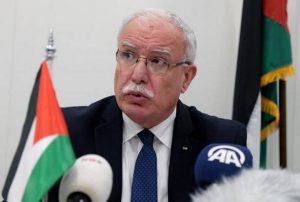
Palestine blamed India for suppressing its human rights of all people as India abstained from the latest resolution on the Palestinian issue.
- India abstained from voting on a resolution at the United Nations Human Rights Council (UNHRC) that came up in the backdrop of the latest round of conflict between Israel and the Gaza strip, the coastal part of the Palestinian territories.
- UNHRC is an inter-governmental body within the United Nations (UN) system responsible for strengthening the promotion and protection of human rights around the world.
The Resolution:
- It called on the UNHRC to set up a permanent commission to probe human rights violations in Gaza, West Bank and Palestine.
- It was adopted with the vote of 24 members. Nine voted against, and 14, including India, abstained.
- Among the countries that abstained on the vote, along with India, were France, Italy, Japan, Nepal, the Netherlands, Poland, and South Korea.
- China, Pakistan, Bangladesh, and Russia were among those who voted in favor; Germany, the UK, and Austria voted against the resolution.
- As it was passed, an independent commission of inquiry was formed to investigate violations of international law by Israel.
Palestine’s Stand: - The resolution is not an aberration to the Human Rights Council. It is the by-product of extensive multilateral consultations.
- It is the consolidation of years and thorough investigations into and reporting on Israel’s grave violations by States, UN experts, Human Rights Treaty Bodies, and international organizations.
- The Palestinian people were deprived of the applicability of international human rights law.
- The root causes of the injustice against the Palestinian people were dispossession, displacement, colonization by Israel.
- Therefore, India’s abstention stifles the important work of the Human Rights Council at advancing human rights for all peoples, including those of the Palestinian people.
- India missed an opportunity to join the international community at this turning point, both crucial and long overdue, on the path to accountability, justice, and peace.
New Pension Rules For Civil Servants:

The Central Government has amended its pension rules putting new restrictions on officials of intelligence and security organizations after retirement.
- The government has amended Rule-8(3)(a) of the CCS (Central Civil Services) Pension Rules-1972.
- The Centre has notified Central Civil Services (Pension) Amendment Rules, 2020.
- The said rules were first drafted in 1972 and have been amended 47 times.
- In 2008, Rule 8 pertaining to “pension subject to future good conduct” was first amended by inserting the condition that retired intelligence and security officials will not publish any material that affects the “sovereignty and integrity of India, the security, strategic, scientific or economic interests of the State, or relationship with a foreign State or which would lead to incitement of an offense”.
Amended Rule-8(3)(a):
- Officials retired from certain intelligence or security establishments (included under the 2nd schedule of RTI Act) will not be allowed to write anything about their organization without permission.
- The Second Schedule of the Right to Information (RTI) Act 2005 covers 26 organizations including the Intelligence Bureau, R&AW, Directorate of Revenue Intelligence, CBI, NCB, BSF, CRPF, ITBP, and CISF.
- Requires the retired officials to sign an undertaking – Form 26 – and declare that without the prior approval of the competent authority they will not publish any information related to the “domain of the organization and obtained by virtue of my working in the said organization”.
- The amendment expands the scope to include any information related to the “domain of the organization, any reference or information about any personnel and his designation, and expertise or knowledge gained by virtue of working in that organization.”
Artificial Sun Experiment: CHINA:

China’s Experimental Advanced Superconducting Tokamak (EAST), also known as the ‘Artificial Sun’ experiment, has set a new record in the latest experiment, where it achieved a plasma temperature of 216 million Fahrenheit (120 million C) for 101 seconds.
- It is believed that the temperature at the core of the Sun is 15 million C, which also means that the temperature produced by (EAST) is nearly seven times that of the Sun.
- It is a significant step in the country’s quest to unlock clean and limitless energy, with minimal waste products.
EAST:
- The mission mimics the energy generation process of the sun.
- The reactor consists of an advanced nuclear fusion experimental research device located in Hefei, China.
- It is one of three major domestic tokamaks that are presently being operated across the country.
- The EAST project is part of the International Thermonuclear Experimental Reactor (ITER) facility, which will become the world’s largest nuclear fusion reactor when it becomes operational in 2035.
- The ITER project includes the contributions of several countries, including India, South Korea, Japan, Russia, and the United States.
- Artificial sun’ EAST replicates the nuclear fusion process carried out by the sun and stars.
- For nuclear fusion to occur, tremendous heat and pressure are applied to hydrogen atoms so that they fuse together.
- The nuclei of deuterium and tritium — both found in hydrogen — are made to fuse together to create a helium nucleus, a neutron along a whole lot of energy.
- Here, fuel is heated to temperatures of over 150 million degrees C so that it forms a hot plasma “soup” of subatomic particles.
- With the help of a strong magnetic field, the plasma is kept away from the walls of the reactor to ensure it does not cool down and lose its potential to generate large amounts of energy. The plasma is confined for long durations for fusion to take place.
The United Nations General Assembly:

India has decided to vote in support of Maldives’ Foreign Minister Abdulla Shahid in the election of the President of the United Nations General Assembly.
- This time the UNGA head will be chosen from the Asia-Pacific grouping.
Asia- Pacific group of the UN:
- Consists of 53 Member States and is the second largest regional group by number of member states after the African Group.
- Its territory is composed of much of the continents of Asia and Oceania with the exception of a few countries.
About UNGA:
- The General Assembly is the main deliberative, policymaking and representative organ of the UN.
- All 193 Member States of the UN are represented in the General Assembly, making it the only UN body with universal representation.
- The President of the General Assembly is elected each year by assembly to serve a one-year term of office.
- The presidency rotates annually between the five geographic groups: African, Asia-Pacific, Eastern European, Latin American and Caribbean, and Western European and other States.
Digital Services Taxes:
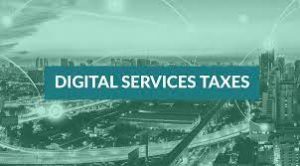
The United States recently announced 25% tariffs on over $2 billion worth of imports from six nations over their digital services taxes, but immediately suspended the duties to allow time for international tax negotiations to continue.
- The S. Trade Representative’s office had approved the threatened tariffs on goods from Britain, Italy, Spain, Turkey, India and Austria after a “Section 301” investigation concluded that their digital taxes discriminated against U.S. companies.
- The potential tariffs aim to equal the amount of digital taxes that would be collected from U.S. firms.
About the Digital Tax:
- India was the one of the first countries to introduce a 6 per cent equalisation levy in 2016, but the levy was restricted to online advertisement services.
- However, India introduced the digital tax in April 2020 for foreign companies selling goods and services online to customers in India and showing annual revenues of more than INR 20 million.
- India has expanded the scope of the equalization levy over the last few years, to tax non-resident digital entities.
- While the levy applied only to digital advertising services till 2019-20 at the rate of 6 percent, the government in April last year widened the scope to impose a 2 percent tax on non-resident e-commerce players with a turnover of Rs 2 crore.
- The scope was further widened in the Finance Act 2021-22 to cover e-commerce supply or service when any activity takes place online.
- Since May 2021, this also includes any entity that systematically and continuously does business with more than 3 lakh users in India.
- Offshore e-commerce firms that sell through an Indian arm will not have to pay.
- This means if the goods and services sold on a foreign e-commerce platform are owned or provided by an Indian resident or Indian permanent establishment, they will not be subject to the two percent equalization levy.
Arun Kumar Mishra: Chairman of the National Human Rights Commission (NHRC).:

President Ram Nath Kovind formally appointed Justice Arun Kumar Mishra as the Chairman of the National Human Rights Commission (NHRC). Justice Mishra’s name was recommended by a high-powered selection panel consisting Prime Minister Modi; Union Home Minister; Deputy Chairman of the Rajya Sabha; Lok Sabha Speaker; and the Leader of the Opposition in the Rajya Sabha.
- NHRC was established in 1993. It is in conformity with the Paris Principles, adopted at the first international workshop on national institutions for the protection of human rights held in Paris in 1991.
- It is a statutory organization established under the Protection of Human Rights Act (PHRA), 1993 as amended by the Protection of Human Rights (Amendment) Act, 2006.
- It is headquartered in New Delhi.
- Functions:
- The purpose of the NHRC is, suo moto or through the petition of a person, to investigate the violation of human rights or the failures of the state or other to prevent a human rights violation.
- The commissions may also take on research about human rights, create awareness campaigns through various mediums, and encourage the work of NGOs.
- The Commission consists of a Chairperson, four full-time Members, and four deemed Members.
- A Chairperson should be retired Chief Justice of India or a Judge of the Supreme Court.
- Appointment: The Chairperson and members of the NHRC are appointed by the President of India, on the recommendation of a committee consisting of:
- The Prime Minister (Chairperson)
- The Home Minister
- The Leader of the Opposition in the Lok Sabha (Lower House)
- The Leader of the Opposition in the Rajya Sabha (Upper House)
- The Speaker of the Lok Sabha (Lower House)
- The Deputy Chairman of the Rajya Sabha (Upper House)
The Seed Minikit Programme:
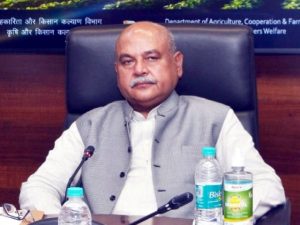
The Seed Minikit Programme was launched by Union Agriculture Minster by distributing Seed Minikits (higher yielding varieties of seeds) of Pulses and oilseeds to farmers.
- The Seed Minikits programme is a major tool for introducing new varieties of seeds in the farmers fields and is instrumental for increasing the seed replacement rate.
- The mini kits are being provided by the Central Agencies National Seeds Corporation (NCS), NAFED and Gujarat State Seeds Corporation and wholly funded by the Government of India through the National Food Security Mission.
- 20,27,318 Seed Minikits of pulses, about 10 times more than last year, and more than 8 lakh Soybean seed mini kits and 74 thousand Groundnut mini kits are to be provided free of cost directly to the farmers under the National Food Security Mission.
The India Cycles4Change Challenge:
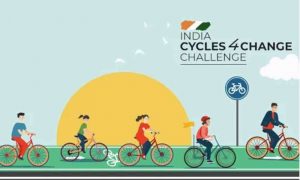
The India Cycles4Change challenge is beginning to gain momentum in Indian cities.
- The challenge was launched under the Smart Cities Mission by the Ministry of Housing and Urban Affairs on 25th June, 2020, as a response to the COVID-19 pandemic.
- As the COVID-19 pandemic was making inroads across the country, cycling saw a huge rise in demand.
- The lockdown restrictions had significantly affected the commuters of public transport, who saw cycling as a personal and COVID-safe alternative for the short and medium-distance commute.
- Moreover, cycling was also seen as a means of staying healthy- physically and mentally by the people who were confined to their homes.
- Against this backdrop, with the launch of the India Cycle4Change challenge, 107 cities registered to be a part of the cycling revolution and 41 cities undertook initiatives vis. surveys, discussions, pop-up cycle lanes, safer neighborhoods, open street events, cycle rallies, or online campaigns that were aimed at creating a cycle-friendly city.
- The Smart Cities Mission, in association with Institute for Transport and Development Policy (ITDP), conducted training modules and other capacity-building initiatives to guide 107 cities on various cycling initiatives.
Shanghai Cooperation Organisation:
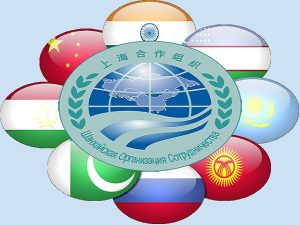
The Union Cabinet of India has approved the ratification of an Agreement on “Cooperation in the field of Mass Media” between all the Member States of Shanghai Cooperation Organisation. The Agreement was signed in June, 2019.
- The SCO is a permanent intergovernmental international organisation.
- It is a Eurasian political, economic, and security alliance and has been the primary security pillar of the region.
- It was established in 2001. It was preceded by the Shanghai Five mechanism.
- The Heads of State Council (HSC) is the supreme decision-making body in the SCO.
- It meets once a year and adopts decisions and guidelines on all important matters of the organization.
- The organization has two permanent bodies:
- the SCO Secretariat based in Beijing.
- the Executive Committee of the Regional Anti-Terrorist Structure (RATS) based in Tashkent.
- Membership: Eight member states: India, Kazakhstan, China, Kyrgyzstan, Pakistan, Russia, Tajikistan, and Uzbekistan.
- Four observer states Afghanistan, Belarus, Iran and Mongolia.
Model Tenancy Act:

The Union Cabinet has approved the Model Tenancy Act for circulation to all States / Union Territories for adaptation by way of enacting fresh legislation or amending existing rental laws suitably. It will help overhaul the legal framework with respect to rental housing across the country.
Salient features of the act:
- The government had first released the draft of the MTA in 2019. The Act aims to bridge the trust deficit between tenants and landlords by clearly delineating their obligations.
- Besides, The Act is expected to give a fillip to private participation in rental housing as a business model for addressing the huge housing shortage.
- The Model Tenancy Act will provide a model for urban and rural properties, as well as a template for residential and commercial properties.
- In case of dispute between landlord and tenant, a rent authority, or a rent court would be available for speedy resolution.
- A tenant will have to submit a security deposit of two months for residential premises.
- For commercial property, a tenant will have to pay six-month rent.
- The tenant cannot sublet a part of or the whole property to someone else.
- If the tenant fails to vacate the premises on the expiration of the period of tenancy or termination of tenancy, the landlord is entitled to double the monthly rent for two months and four times after that.
- the landowner would give notice in writing three months before revising rent.
- The landlord cannot hike the rent in the middle of the tenure.
MGNREGA Scheme:
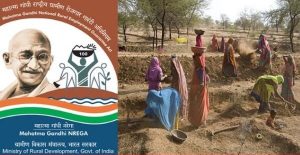
The Centre has asked the States to split wage payments under the Mahatma Gandhi National Rural Employment Guarantee Act (MGNREGA) scheme into separate categories for the Scheduled Castes, the Scheduled Tribes, and others from this financial year.
- The government of India has decided to provide separate budget heads for SC and ST categories under MGNREGS from the financial year 2021-22 for wage payment.
- The existing system for wages under the scheme is for only one type that is there is no category-wise provision of wage payment.
- Workers’ rights advocates said this will complicate the payment system, and expressed fears that it may lead to a reduction in scheme funding.




